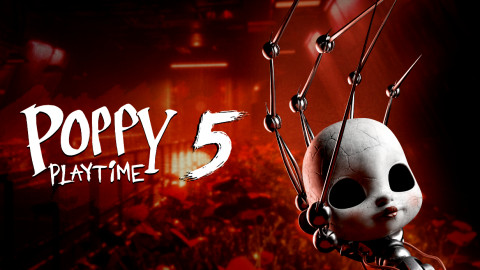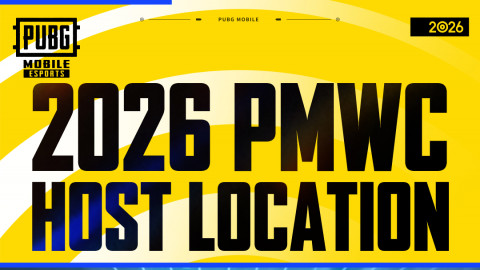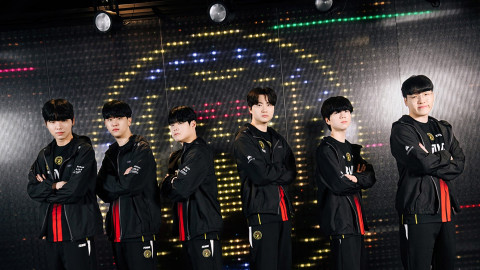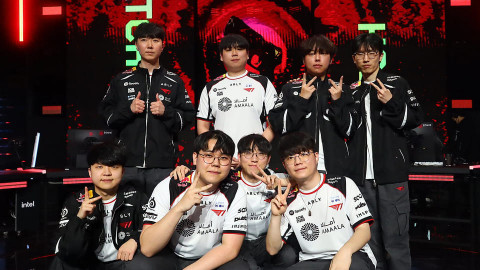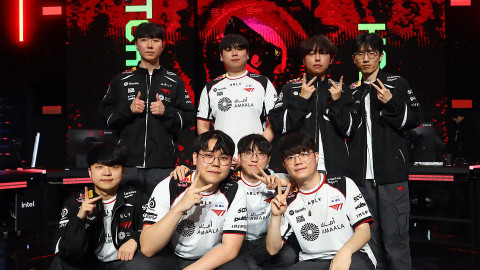
Team Vitality spent the bulk of 2020 as frontrunners in the Counter-Strike despite significant shifts within the team. In the midst of the role shuffles, the emergence of a new in-game leader and the transition of talented players into potent team members, head coach Rémy “XTQZZZ” Quoniam stood tall and provided guidance and direction across the board.
Inven Global spoke to the coach regarding the unique position he occupied in the French scene — one that made him tailor-fit for the task of carrying Team Vitality to the heights of international CS:GO — and of the special difficulties that 2020’s online era provided.
The following is a raw transcript translated from French.
Throughout your career, you made so many transitions — from playing to casting to coaching. I wonder how you eased into the fundamentals of each role, and how you progressed to this point.
It was a “typical” career arc. I was an in-game leader in the French scene, but I didn’t play CS:GO all that much because I had a lot going on in my day job.
At first, I found myself coaching a bit for fun to see how it would go in a French team under the top level. Then I started playing left and right, got into streaming, and found myself commentating after doing so for fun.
How did I get there? As a caster, when I wound up casting for the top French CS:GO channel (ESL France) and commentated and analyzed gameplay nonstop, it helped me get back into the scene. When I cast, I’m more interested in looking at strategies. Back when I played, I was not that great in terms of skill [laugh]. But when it came to analyzing gameplay, strategizing, and managing people, that was more my specialty. With that, a lot of big names in the scene get interested. That’s how you wind up being a coach.
So, as much as you had some of the prerequisites for the job, it was always a leap into the unknown...
Even though I knew that esports would eventually blow up, I didn’t put 100% into it since I was splitting time between esports and my career at the time. But casting allowed me to focus on esports fully because it allowed me to earn a living on its own.
When I was offered to coach, I had wanted to do so for years, but I didn’t think I would get an offer. As the channel that I was working in was closing, I was thinking of doing something else, maybe even quit esports long story short.
When I got into coaching, I told myself, "This time, let’s give it 3,000,000%." Before, I didn’t give it my all because I didn’t have that many openings available.

I am actually surprised to hear that you nearly quit esports. What happened?
I had just become a father, and I had to take responsibility for my child. With casting over, and without receiving income for months, it was complicated. I had to fend for my family.
For years, I was waiting to receive an offer because I was being told that I should be in a similar position. But there was a closed circle of influence at the time — an inbreeding of sorts, if you allow me to use the term. There were no roster shuffles, with players even switching to coaching a team. There was no attempt to change things. So, I thought for a time that the opportunity would never come. I didn't completely lose hope, but I didn't base my prospects on it happening since nothing had changed for two-three years.
But within that timeframe, you were able to work close to the French scene. That must have helped you scout talent.
Near the end, I was casting ESL Pro League matches. I was casting for ESL, so we were casting only the big games. Then we also broadcasted the [French] national championship.
I discovered ZywOo near the end of 2017. I was at Gamers Assembly, at the time the biggest tournament in France. While I was in the small casting booth, a “war box”, he broke out throughout the tournament. At the time, there was some noise on Twitter about it when he was barely getting started at WySix. But I also saw misutaaa at that tournament back when he was 14. The kid was already playing LANs at 13, and he was already beating people left and right.
Besides, I was a trainer at heart, and I helped young people overall. So, I took interest in young talent, like other French CS:GO figures.
Nowadays, I don't have all that much time, but I watch games in the French scene to see who's emerging, and how things are evolving, considering that — let's be honest — the French scene is currently experiencing great difficulties. That's how I operate. And if I see a promising player, I keep monitoring them, as was the case for the two young players that we recently recruited [misutaaa and Nivera].
Let’s talk about your arrival at Team Vitality. I believe the roster was already shaped when you arrived.
I arrived three months after the lineup was made. Initially, I was helping them out [remotely] for DreamHack Atlanta, and they won the tournament. I signed with Vitality one week later.
Upon your arrival, you had to see what the situation was and to diagnose anything that was amiss. What can you tell me about it?
When I arrived, I observed [how things were going.] I was surprised since I expected something more professional, more communicative, but I could see right away that things weren't going well. I set my expectations high because it was the first time that I was coaching a team at the highest level, but I expected better. Honestly, in terms of team comms, some things weren't working, and something had to give. Ultimately, I sidelined Happy to ensure that we progressed following a common line towards a common goal.
As we evolved, even though we had quite a few issues, we had to consolidate ourselves professionally. At the time, what we had was not enough, at least that's what I thought.

That led to the arrival of an old friend of yours that you’ve known as a coach and as a teammate.
Alex was the best man at my wedding. We’ve known each other for a long time.
For two-three months, people criticized me for hiring Alex “solely because we knew each other”. The community became that way: easy to criticize, quick to look for the bad side of things.
Alex struggled in the beginning, but there was a plan for him to eventually become the in-game leader. Once the move started paying off, nobody spoke along those lines anymore.
At the time, everyone thought that we were picking up AmaNEk, and word spread that we didn't pick him up because ALEX was my friend. But we were planning further down the line in our project.
I knew ALEX from my time coaching Melty, even joined as an emergency player, and ended up getting washed and finishing second. But I trusted his ability to put in the work. People working with intensity to improve in CS:GO gameplay and knowledge are very, very scarce in France. No clue how it goes internationally, but in France, we have a CS:GO culture of strong individual gameplay but not much else. For the other aspect, I knew ALEX extremely well, and I knew that he fit what the team needed.
As it turned out, the choice made itself, really.
Yes. At the time, I consulted with the players and they weren't satisfied with the way things were and didn't think that Happy would change. So, we thought about it and suggested names across the board. In the end, I made the decision to follow the direction that we as a team wanted to take. We had some youth on the lineup, and we needed to rejuvenate the way the team saw the game. We understood that we needed him to assume that role for him to develop because he had a creativity factor that NBK- didn't have at the time. We saw it as a logical decision, but others didn't see what we were aiming for.

In retrospect, things worked quite well in 2019, but I wouldn't say that things worked as well when looking at it through the lens of 2020 in terms of results.
2020 will forever be a defining year in international CS:GO given the COVID “side note”, with all the competitions played online.
Nowadays, whether they're right or wrong, people downplay 2020 because of the nine months spent playing tournaments online. But five-six years from now, people will remember that year as the year that we couldn't go to offline tournaments.
It's hard to compare 2019 to 2020. We had good results in 2019, but people kind of buried us after ALEX left in 2020.
Let's be frank: it isn't easy, even today, to spend our lives online. A lot of teams have underperformed, sometimes because lineups didn't work out, but I also think that it's partially due to the difficulty of setting objectives for oneself and staying focused.
We're in it for tournaments and to play to a live audience, but some players are struggling to play from home. In our case, we managed to perform.
The way we saw it, we didn't have a choice: we had to do it, and we had to perform. It's a simple discourse: when we managed to follow suit, things worked out. But you have to remind yourself of that over and over.
Saying that things were going well would be an exaggeration: in the second half of the season, I can tell you that we were on the verge of blowing up. Some players nearly had burnout situations. It's very difficult to manage.
Things are still difficult early in 2021 as we are clearly at a disadvantage by the measures Valve took. We set objectives in 2020 and we witnessed them get destroyed in one decision.
But that's why we performed well in 2020. Now, to the extent of saying that it was better than 2019, I don't know; we won offline events back then, and everyone was present. 2020 had more of a mental focus: I don't think that the strongest teams on a power level were the ones that showed up the most in 2020, rather the ones that had the strongest mental fortitude.
I think we're better than we were in 2019, but we will never know if we would have had the same results had tournaments been played offline. It's easy to say so from the outside, but even we—as a team that performed—ask ourselves that question. We aren't downplaying it the way that a team that struggled and told itself "we would have performed if everything was played offline" would, but it's complicated.

I see how mental fortitude can be important, especially when there’s no separation between work and home, when players are accustomed to the offline events’ atmosphere to prime themselves mentally. But I think that competition is competition at the end of the day...
I agree, but the advantage of offline tournaments is that even though we were playing tournaments in quick succession, we played in different countries. Every trip triggered a reset; people knew that they were playing a different tournament.
However, for example, we had seven weeks of competition between September and November 2020, and I had a player or two who lost track of what we were doing. RpK even asked me once whether we were playing a quarterfinal or a semifinal because we were playing so many tournaments within short timespans that we lost track of what we were playing for.
Sure, competition is competition, and we play every game to win, but you can lose track of the value and flavor of a tournament because there is no time to reset in the midst of these tournaments online. I find that tragic in CS: you play a final on a Sunday, then play in the first round of another tournament on the following Tuesday. You don't see that anywhere else.
I find that to be dangerous for a competitive setting. I think we played more than 30 quarterfinals against NiP or something like that — we were playing the same teams over and over. It got to a point where we weren't preparing for games between us anymore: I think we played them three times in a week, and that makes no sense in a normal setting.
There comes a point where you lose track of why you compete and what you are playing for. That's what's difficult to handle. And that's the card we are sadly dealing with in CS. And it has come to the point where I see CS:GO not as a performance-driven game, but as an endurance test.
In 2019 and 2020, you could see that quite a few teams won tournaments in a cyclical way: a team that was in third place during the spring hits Rank 15 in July only to climb back to third place in December. And that's where you can see that some things are popping left and right.
That's why I keep hearing that 2020 CS wasn't the pinnacle of play in terms of quality, but that's absolutely normal: with fewer tournaments, maybe you would see the same teams, or maybe you would see upsets as significant milestones. But nowadays, the performances of a team like Heroic — one that had an exceptional season — wouldn't be perceived as milestones, but as proof that everyone can beat everyone. AVANGAR making it to a Major final was seen as a surprise in 2019, but it was one of many. In both cases, that's because there are too many tournaments happening within a short time of one another.
Nowadays, mental endurance is as significant as raw performance. You hear more and more pro players saying things like, “We're playing this tournament right now, and that tournament next week.” Then there's the part about winning a tournament on a Sunday only to get back into the grind on Tuesday. It's not only difficult, it's a brutal pace that is being required from a competitor.

In such a setting, Vitality still did a decent transition regarding their IGL swap, with shox helping out in the process. What can you tell me on that front?
We had too many voices in-game when ALEX was around, and shox needs to have a say in the game. Giving shox the keys to leading in-game is not a possibility as I believe that he needs more stability — and things need to be very stable for an in-game leader. When ALEX withdrew from the team, we had three days to decide what to do because we had to give the roster list to [ESL] ProLeague. Then it dawned on me that apEX needed to be the in-game leader and I needed to think about how to make it happen.
Everyone knows that an IGL needs to control their emotions, and that isn't easy. But he was in a tough individual shape for months, and I felt that it was a good time to restructure his career; he was 27, and he was a very hard worker — worked too much, even when it's important to think about your condition. apEX was always looking for the little things.
When apEX called me to ask who would be the in-game leader, I told him: "You." Two-three seconds later, he quickly came to the realization that he could do it, and he was honest with me. "I can do it, but you will have to help me," he told me. As a staff which includes a performance coach, we had to tempt him to go for it, because we didn't have any alternative; I wasn't going to put RpK as our in-game leader. [laughs] But we had to point him in the right direction to perform as well as we could.
It was a significant switch in our project, and I immediately gave shox the responsibility of helping him ease into it since he was an in-game leader once — a creative one with his own tricks at that. Even today, we're doing our best to maximize their ability to understand each other. What isn't often said in the media: sure, ZywOo is an exceptional player, but there have been a few futile debates on whether Vitality would perform at this level without him; but without the dynamic between apEX and shox, we would never be able at this level. Replacing shox with any other player, but one without his creativity and his ability to help, or replacing apEX with another in-game leader who can't coordinate with shox, would cause the team to malfunction. We would be in the top 10, everyone talking about "Team ZywOolity" instead.
People need to be able to measure the impact of such things. Sadly, that isn't something that we can show easily as a team needs to have a private setting. But the work these two guys put into it, their quest for improvement and to understand what I want us to get into in terms of professionalizing our project... without them, I would be in deep trouble every day. They're doing the work for the other players too. That's why things were working out in 2020.
That's why we need to recognize their efforts, especially since their efforts gain little recognition because everyone is focusing on numbers and stat lines.
There's also the part where their work ethic can inspire their teammates.
Other teams don't talk about it, but that's the way it is overall. There's a dynamic between IGLs and their teammates, and that usually stays private. Previously, we didn't hesitate to tell it all in interviews, which was a bit dangerous since it could be used against us later. But I don't know the specifics of how other teams work.
I can see in Astralis that everyone can talk, not just the in-game leader, and have suggestions. That's how it works nowadays: but if one side of the link weakens, the other will too.
You have to realize that an in-game leader can't make it work alone. He can't be on an island: there are many zones on a map, and he has to manage five players; if he is forced to do that on his own, he'll collapse.
Sort by:
Comments :0


